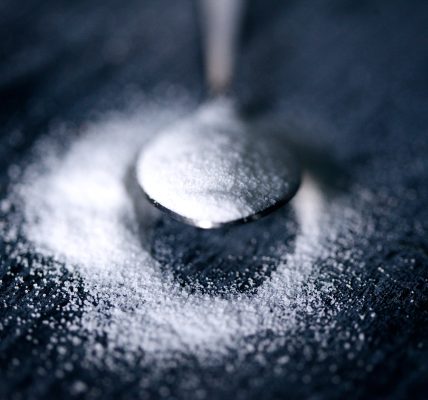Particularly Wheat and Sugar

We scratched the surface of this topic a while back. Wheat and sugar: Some people don’t believe that either one is addictive. Others believe that those are the two most addictive substances in the category of things considered to be food. Then somebody else comes along and breaks the news that in a certain way, when Nature decides to combine them, wheat and sugar are actually the same.
About a year ago, Flavor Insider published Hannah Grace’s startling and informative article,
“The Surprising Truth About Whole Wheat Flour And Sugar: Does It Have Sugar In It?” We are informed that starch, a complex carbohydrate found in the wheat kernel, decomposes into glucose, the body’s main source of energy. Whole wheat flour also contains some fructose, too — a natural form of sugar. So, the components include one type of sugar, another sort of sugar, and stuff that breaks down into sugar.
Exactly how much sugar can be found in whole-wheat flour? That depends, according to this article, on the particular strain of wheat; and on the milling process, which involves a lot of variable factors. A 100-gram scoop of whole wheat flour might include between one and two grams of sugar.
But what about refined flour — the white powder that, for most of us, holds the default definition of flour in our mental dictionaries? As it turns out, refined flour can contain a significantly higher percentage of sugar — like maybe 10 grams of sugar per 100-gram serving, in contrast to whole flour’s one or two grams. That would be, in the refined flour, from five to 10 times as much.
People have any number of reasons for believing that sugar is — or is not — a drug of addiction; reasons that are based on a sincere need to believe that sugar either is — or is not — an addictive substance. People are probably tired of debating the point. So what? Aren’t there a lot of worse problems to concern ourselves about? Well, sure, but can the subject be abandoned on that basis? Seriously, if a commodity is accessible, affordable, and addictive, shouldn’t we be worried?
Who could deny that sugar is super-duper accessible? Some people even give it to children as a token of affection, or use it as a bribe to elicit compliant behavior. In most environments, a small amount of sugar might be stolen and not even be missed. This cannot be said about heroin. Sugar is definitely affordable, and in some situations is even given away for free. We would not want to hear about gratis distribution of fentanyl or meth, and yet it is true of sugar.
Given all this, it would seem appropriate to make a determination about whether the stuff is or is not addictive. Established expert Dr. Vera Tarman feels that, because of their biochemical action directly on the brain, sugar and wheat flour are the almost-sole addictive foods.
Other authorities like Phil Werdell, Kay Sheppard, and Bright Line Eating also seem to feel that only flour and sugar constitute the problem. So, while there may not be such a thing as food addiction, there might be “flour and sugar addiction.”
Now, when it comes to flour, or any other designated addictor, it seems like the jury is still out, because so many of those multi-factorial factors are unknown. But what if some psychology professionals are right in pointing out that other experts need to get on board? What if believing you are an addict is the disease?
If an individual admits to being an addict, shouldn’t we take their word for it? Apparently, some folks are addicted to eating mattress stuffing or thumbtacks, or who knows what? Are we meant to sit around and argue with them, citing chapter and verse, that theirs is not a true addiction according to the DSM-5? Or are we supposed to help them?
A lot of people who thought they were addicted have gone into addiction-oriented programs, and achieved recovery, and who are we to argue with their results? If therapy works, it works. You don’t tell them it doesn’t, if they have personal experience that it does, because they will think the crazy one is you.
In search of the source of a problem, to look first inside the head is a great idea. If someone is an addict in their head, 12 Steps or some adaptation thereof appears to help a lot. It almost seems as if, when a patient presents as a food addict, the practitioner is now fully informed. In all of medicine, addiction appears to be the one area where self-diagnosis is most appropriate.
Written by Pat Hartman. First published May 30, 2025.
Sources:
“The Surprising Truth About Whole Wheat Flour And Sugar: Does It Have Sugar In It?,” Flavor Insider, May 23, 2024.
“Withdrawal from Sugar and Flour,” BrightlLineEating.com, February 12, 2025.




